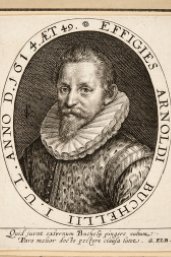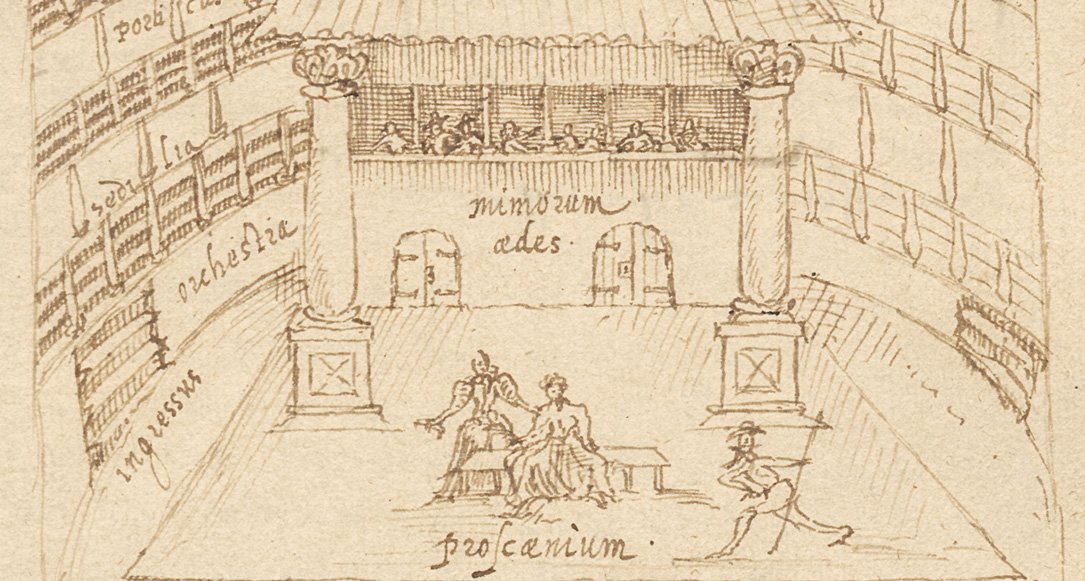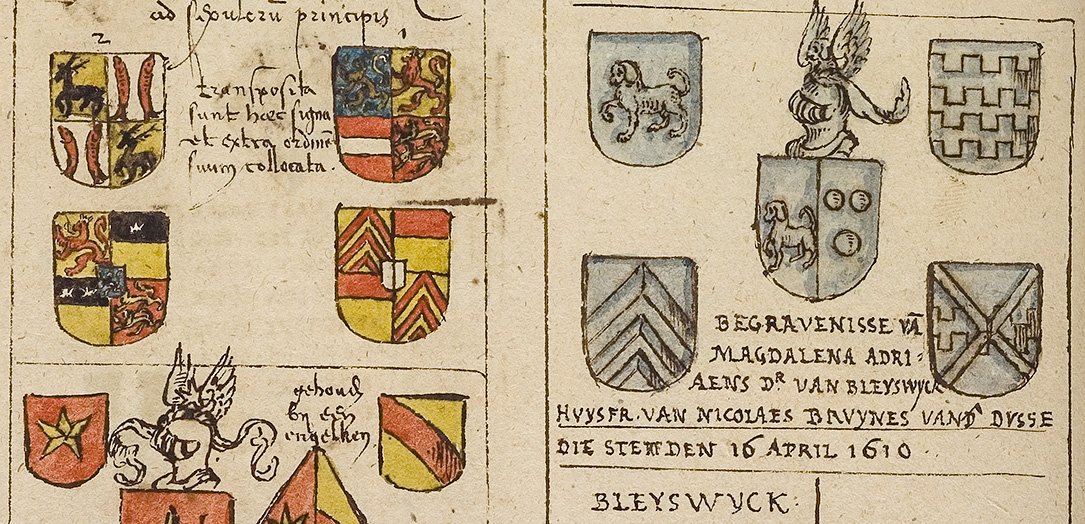Buchelius collection
Unique insight into a turbulent period

If there is one Utrecht citizen who in his person unites all aspects of the turbulent Reformation period, it must be Aernout van Buchell (Arnoldus Buchelius). He lived from 1565 to 1641 and this means that his life almost completely coincided with the Eighty Years’ War between the Netherlands and Spain. Buchelius lived through it all: wars, iconoclastic outbreaks and religious conflicts, the rise of trade and prosperity, the foundation of the Dutch East India Company and a new era of culture, art and science. About these events he wrote many letters, poems, notebooks and treatises which give a unique insight into a turbulent period, but also a time in which daily life continued as usual.
The major part of Buchelius’ legacy of writings is housed in Utrecht University Library. It is a rich source about the man, his city, his network and his time. Even though he had never received an academic education and had only published one book -posthumously- (Historia Ultrajectina, 1643), as a historian he was respected and consulted by his contemporaries. His notes about monuments both in and outside the city of Utrecht are invaluable, because many of the things he described and copied in drawings no longer exist.
Buchelius the bastard
As a bastard son from a wealthy family Buchelius studied law in Douai (Northern France) and later travelled to Italy via Germany. He collected his travel notes in his Diarum of which the present edition in two volumes by Kees Smit covers over a 1000 pages. But Buchelius had both an eye for monuments and inscriptions and for the spiritual life of man. He made a switch from Catholicism to Protestantism and noted down what he experienced as a deacon (supervisor) of the church community and as a trustee of a Utrecht house of correction. He was also a board member of the Dutch East Indian Company for a year. He committed his experiences to his notebooks; the personal style in which they are written makes them so special.

Buchelius the prolific writer
Buchelius was a prolific writer and among his manuscripts in Utrecht University Library or elsewhere we find collected poems written by himself, friends and others, descriptions of the lives of learned Dutchmen, artists or famous women, and thoughts on female customs in general. Furthermore, we find miscellaneous copies of mainly Utrecht historical texts and records, drawings of medieval seals, several volumes with genealogical notes about Utrecht families and other families, armorials and descriptions of monuments with drawings.
Buchelius the networker
Buchelius had a very large network, mainly consisting of men of learning with whom he frequently corresponded, judging by his considerable collection of letters (both originals and copies, also exchanges of letters by others) and his two alba amicorum, friends books. But we also know a lot about his family, including his uncle Hubert van Buchell, thanks to official pieces, such as deeds of which he owned the originals or the copies. Finally there are various catalogues of his book collection which also include copies with his notes.

All this material brings Buchelius and his time to life as is seldom the case for his contemporaries. Its value lies in his personal observations and in the fact that he did not belong to the political or learned elite. Buchelius was ‘merely’ a well-to-do citizen. That is why Buchelius’ collection is an inexhaustible source for research, created by an all-round, self-made historian with broad interests and an eye for detail. A man of his time, right in the middle of the Eighty Years’ War and the Reformation, but also someone who recorded the past before it was lost forever.

